I have been developing a Joomla site with version 2.5.11.Site will be under very high traffic.
My problem is about MySQL query performance. Database includes about 60000 rows in content table, and the query seen below (core com_content articles model query) execution time is about 6 seconds.Very slow.
SELECT a.id,
a.title,
a.alias,
a.title_alias,
a.introtext,
a.checked_out,
a.checked_out_time,
a.catid,
a.created,
a.created_by,
a.created_by_alias,
CASE
WHEN a.modified = 0 THEN a.created
ELSE a.modified
END as modified,
a.modified_by,
uam.name as modified_by_name,
CASE
WHEN a.publish_up = 0 THEN a.created
ELSE a.publish_up
END as publish_up,
a.publish_down,
a.images,
a.urls,
a.attribs,
a.metadata,
a.metakey,
a.metadesc,
a.access,
a.hits,
a.xreference,
a.featured,
LENGTH(a.fulltext) AS readmore,
CASE
WHEN badcats.id is not null THEN 0
ELSE a.state
END AS state,
c.title AS category_title,
c.path AS category_route,
c.access AS category_access,
c.alias AS category_alias,
CASE
WHEN a.created_by_alias > ' ' THEN a.created_by_alias
ELSE ua.name
END AS author,
ua.email AS author_email,
contact.id as contactid,
parent.title as parent_title,
parent.id as parent_id,
parent.path as parent_route,
parent.alias as parent_alias,
ROUND(v.rating_sum / v.rating_count, 0) AS rating,
v.rating_count as rating_count,
c.published,
CASE
WHEN badcats.id is null THEN c.published
ELSE 0
END AS parents_published
FROM #__content AS a
LEFT JOIN #__content_frontpage AS fp ON fp.content_id = a.id
LEFT JOIN #__categories AS c ON c.id = a.catid
LEFT JOIN #__users AS ua ON ua.id = a.created_by
LEFT JOIN #__users AS uam ON uam.id = a.modified_by
LEFT JOIN
(SELECT contact.user_id, MAX(contact.id) AS id, contact.language FROM
#__contact_details AS contact WHERE contact.published = 1 GROUP BY
contact.user_id, contact.language) AS contact ON contact.user_id =
a.created_by
LEFT JOIN #__categories as parent ON parent.id = c.parent_id
LEFT JOIN #__content_rating AS v ON a.id = v.content_id
LEFT OUTER JOIN
(SELECT cat.id as id FROM #__categories AS cat JOIN #__categories AS
parent ON cat.lft BETWEEN parent.lft AND parent.rgt WHERE parent.extension
= 'com_content' AND parent.published != 1 GROUP BY cat.id) AS badcats ON
badcats.id = c.id
WHERE CASE
WHEN badcats.id is null THEN a.state
ELSE 0
END = 1 AND
a.featured = 0 AND
a.id NOT IN (8921, 33722, 33728, 33729, 34187, 35047, 36784, 36236, 33724,
19522) AND
a.catid IN (8, 39, 40, 38, 72, 9, 10, 11, 12, 13, 14, 15, 16, 17, 18, 19,
20, 21, 22, 23, 24, 25, 26, 27, 28, 29, 30, 36, 37, 41) AND
(a.publish_up = '0000-00-00 00:00:00' OR
a.publish_up <= '2013-06-12 06:44:44') AND
(a.publish_down = '0000-00-00 00:00:00' OR
a.publish_down >= '2013-06-12 06:44:44')
GROUP BY a.id,
a.title,
a.alias,
a.title_alias,
a.introtext,
a.checked_out,
a.checked_out_time,
a.catid,
a.created,
a.created_by,
a.created_by_alias,
a.created,
a.modified,
a.modified_by,
uam.name,
a.publish_up,
a.attribs,
a.metadata,
a.metakey,
a.metadesc,
a.access,
a.hits,
a.xreference,
a.featured,
a.fulltext,
a.state,
a.publish_down,
badcats.id,
c.title,
c.path,
c.access,
c.alias,
uam.id,
ua.name,
ua.email,
contact.id,
parent.title,
parent.id,
parent.path,
parent.alias,
v.rating_sum,
v.rating_count,
c.published,
c.lft,
a.ordering,
parent.lft,
fp.ordering,
c.id,
a.images,
a.urls
ORDER BY publish_up DESC
LIMIT 4, 4
For example when I changed
(a.publish_up = '0000-00-00 00:00:00' OR
a.publish_up <= '2013-06-12 06:44:44') AND
(a.publish_down = '0000-00-00 00:00:00' OR
a.publish_down >= '2013-06-12 06:44:44')
with
(a.publish_up >= DATE_SUB(NOW(), INTERVAL 2 MONTH))
Query execution time is about ~0.5second
Query explain :

What can I do without hacking the core code,I never want to hack the core code...
MySQL server Config:
skip-external-locking
skip-name-resolve
key_buffer_size = 128M
max_connections=1024
max_allowed_packet = 16M
net_buffer_length = 8K
table_open_cache = 512
table_cache = 2048
join_buffer_size = 128M
read_buffer_size = 128M
sort_buffer_size = 128M
read_rnd_buffer_size=2M
myisam_sort_buffer_size=128M
thread_concurrency=16
query_cache_size = 128M
query_cache_type=1
thread_cache_size = 1300
query_cache_limit=128M
max_heap_table_size = 1024M
tmp_table_size = 1024M